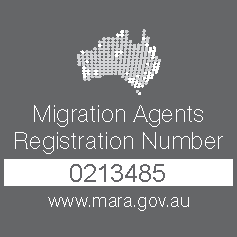Most people would do anything to be able to live in Australia. Unfortunately, anything can include bribery. Visa applicants desperate to obtain a sponsored work visa have been known to offer sums of money to potential sponsors. On the other side of this, there are people who are willing to scam overseas workers with the promise of a job or permanent residency in Australia in exchange for money.
All visas have eligibility criteria. These may include requiring a sponsor, having relevant experience in a particular field of work etc. But for those who don’t meet these requirements, some have been known to try to buy their way in.
The number of people trying to offer benefits or payment in exchange for sponsorship and jobs either for themselves or others has increased. The overwhelming number of cases where people have tried to pay for sponsorship has resulted in the Department of Immigration imposing the ‘no payment for sponsorship’ requirement.
In short, it is illegal for sponsors, employers or third parties to gain in a ‘paying for sponsorship’ arrangement. It is also illegal for visa applicants to gain permanent residence in Australia or the opportunity to work in Australia by providing benefit to an employer for a job.
This ‘no payment for sponsorship’ policy not only ensures that visa applications include an honest declaration of circumstances and encourage a fair recruitment system, but also protects overseas workers from exploitation and extortion.
Which visas are affected by the ‘no payment for sponsorship’ requirement?
– Training (subclass 407)
– Temporary Activity (subclass 408)
– Temporary Work (Skilled) (subclass 457)
– Temporary Skill Shortage (subclass 482)
– Employer Nomination Scheme visa (subclass 186)
– Regional Sponsored Migration Scheme visa (subclass 187)
What is considered a benefit?
Benefits include:
– On-off lump sum payments
– Ongoing regular payments
– Underpayment of a visa holder’s wages or salary
– Repayment of a visa holder’s wage or salary
– Unpaid work
– Hours of work paid below the visa holder’s hourly wage or enterprise agreement arrangements
– Payment for goods or services above market value
– Gifts
What happens if you are caught paying for sponsorship?
Two main situations where there may be consequences for paying for sponsorship are:
– A person asking for or receiving benefit in return for the occurrence of a sponsorship related event
– A person offering to provide a benefit in return for the occurrence of a sponsorship event
The consequences of having paid for sponsorship is not only an unsuccessful visa application but can also include:
– a fine
– being charged with a criminal offence
– civil penalty
– receipt of an infringement notice
– administrative action
– the barring or cancellation of sponsorship
– visa cancellation
Penalties for sponsors include:
– Cancellation of their approval as a sponsor
– Being barred from sponsoring other workers
– Being barred from making future applications for approval as a sponsor
– Being issued with an infringement notice
– Civil penalties imposed by the courts
– Enforceable Undertaking between the sponsor and the Department of Home Affairs / Australian Border Force.
NB: More than one sanction can be imposed.
Of course, the Department of Home Affairs will not pursue visa holders if they have been subjected to:
– Exploitation and extortion
– The use of coercion, violence or deception
– Slavery or human trafficking
How can people avoid being scammed?
Anyone seeking to migrate to Australia should:
– Use a Registered Migration Agent
– Be aware of their work rights and their employer’s obligations
– Keep up to date on current scam warnings and understand the warning signs
Sponsor Obligations
Once a business sponsorship is approved, it is the responsibility of the sponsor to provide to their employees:
– A safe workplace
– Legal pay rates
– Leave conditions
– Shift arrangements
– Payslips
– Superannuation and taxation documents
If you would like to learn more about the ‘no payment for sponsorship’ policy, contact Visa Solutions on 1800 828 008.
Travel Exemptions
While Australian borders are currently closed due to the COVID-19 pandemic, travel exemptions may apply under the following circumstances:
– A traveller has a compassionate or compelling reason to visit Australia
– Overseas workers holding a Subclass 482 or 400 visa are required to undertake a job in Australia that cannot be filled by a local employee in a critical role or sector.
Visa Solutions Australia has been successful in acquiring a broad range of exemptions, from critical workers to those needing to travel on compassionate grounds.







